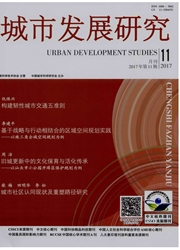

 中文摘要:
中文摘要:
传统的城市发展模式正面,临经济增长乏力和生态危机的巨大压力,亟待创新。低碳城市建设是城市发展的一种新的范式.已受到政府与学术界的高度关注,并在实践中取得显著成效。尽管如此,低碳城市建设尚存在概念不统一、碳核算精度欠佳、评价指标体系过于静态、城市低碳建设模式趋同、新能源产业财政支持重点偏颇、居民低碳意识到行为转化难以及政府间协调机制缺乏等诸多问题在梳理上述问题的基础上,提出未来我国低碳城市建设的优化政策。
 英文摘要:
英文摘要:
The Low-carbon city construction is a new city development paradigm, which has been highly concerned by the government and the academic circles. Being constructed for several years, the Low-carbon city has developed greatly. However there are still some obstacles to be breached. The concepts of the low-carbon city have not been generally accepted. The method commonly used to calculate carbon emission is not positive. Evaluation index system is over-static. The low-carbon city construction mode is convergence. Financial support for new energy industry is biased. The gap between the Low-carbon consumption attitude and action of the city dweller is notable. There is a lack of diversity and coordination in the low-carbon city construction. Based on the analyses of the above problems, polices are made out to optimize the construction of China's low-carbon cites.
 同期刊论文项目
同期刊论文项目
 同项目期刊论文
同项目期刊论文
 期刊信息
期刊信息
